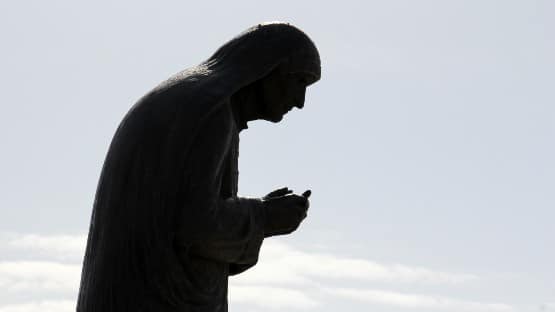
Mother Teresa said: “If I look at the mass I will never act. If I look at the one, I will.”
How has this played out in recent times?
The last decade has showcased a trend that has been observed for the last century. Good people will repeatedly ignore mass murder and genocide. Good people will give to causes the believe in but United Nations International Children’s Emergency Fund is underfunded, in 2018 they reported that more than three million children die of undernutrition each year.
Oxfam, an organization dedicated to alleviating global poverty, tells us that $23 billion could meet the needs of people facing starvation and acute malnutrition this year, or “$37 billion every year until 2030 to tackle both extreme and chronic hunger.”
Similarly, when hundreds of refugees perished in a terrible Mediterranean fishing trawler disaster last month, it generated a few stories in the US press, but nothing like the rapt attention and comprehensive coverage blanketing our news media during the search for a missing tourist submersible. AP news reports that OceanGate Expeditions is an undersea exploration company that has been chronicling the Titanic’s decay and the underwater ecosystem around it via yearly voyages since 2021.
I have observed a variety of ways that people are reacting to this search. One example is the observation: “I wish people cared the same about refugees on boats the same as billionaires on sightseeing trips to the Titanic.” But this type of shaming will not work. Demanding that a person “care” is different from a critique of media priorities, and extrapolating media coverage into judgment of society in general is unlikely to result in more assistance to refugees.
There is a large body of research explaining that people are much more likely to act charitably to individuals or in response to “bad luck” than they are to help groups or systemic problems. This is why so many aid groups advertise about aiding an individual’s life. Our brains perceive large problems as unsolvable but individual struggles as “I can make a difference.” We also tend to view mass numbers as less relatable than one person’s life, or a small group’s fate.
Personalizing problems can seem manageable, but contemplating systemic change is often felt as a tsunami of complex and massive challenges. It feeds the compassion fatigue. If I donate $50 and I’m told that four-year-old refugee Jamila in a far-off land has enough to eat for two months as a result, that is tangible and my compassion is energized, not enervated.
In our self-talk, we can reframe some of the systemic barriers so that we can take small actions toward preventing further structural failures that cost so many lives.
Instead of shaming, we need to demand changes to our broken systems and alarming budget priorities. We need to elect leaders who will see to the changes that can address and alleviate these global calamities that go un-or-under addressed year after year.
Yes to my $50 toward Jamila’s survival and yes to my $50 toward the election of an official who will rightly reduce the bloated military budget in favor of life-affirming structural outlays. Jamila is meaningful to me, even though she is only one of millions. Similarly, when we think of how close votes are in politics these days, supporting one peace candidate with my little donations can feel doable and significant.
Any budget shortfall for saving life can be taken from the war coffers. In our hearts, we know this, and our hearts should be driving our intentions and our actions.
Wim Laven, Ph.D., syndicated by PeaceVoice, teaches courses in political science and conflict resolution.









